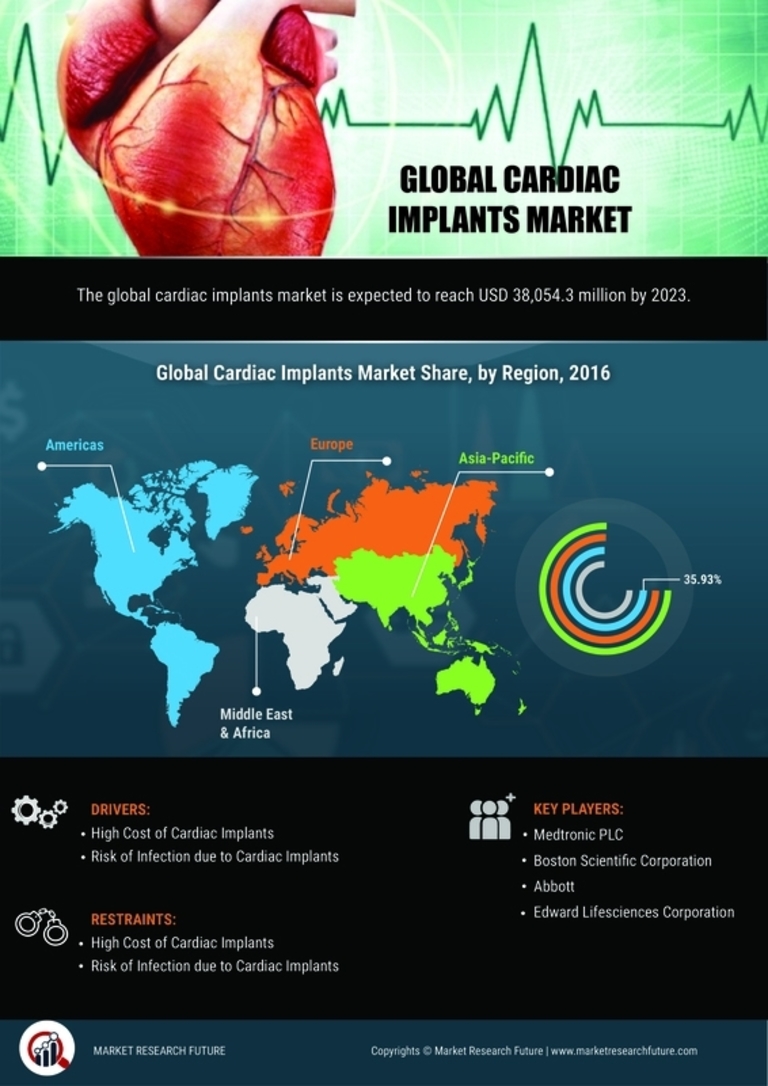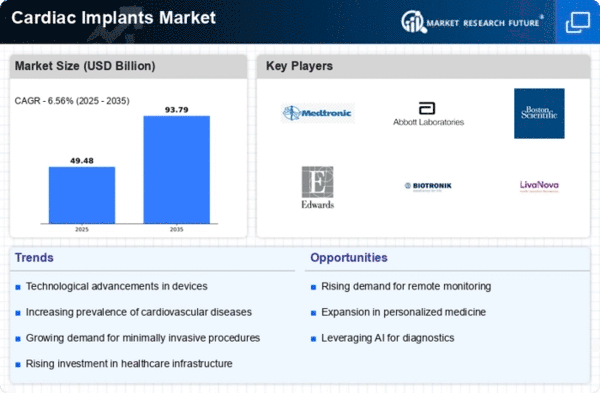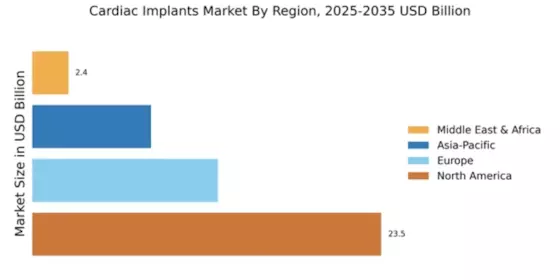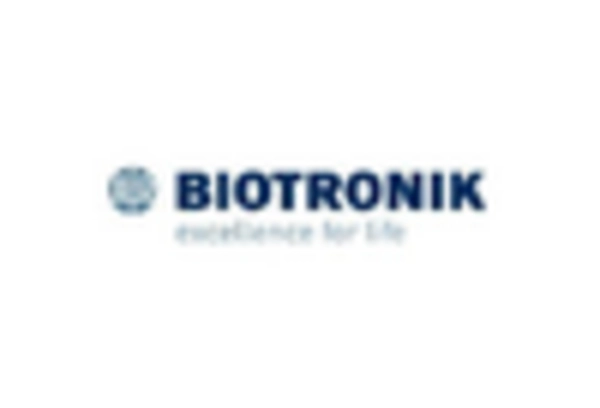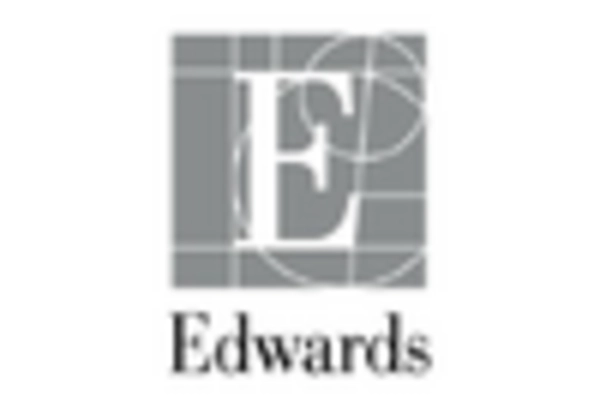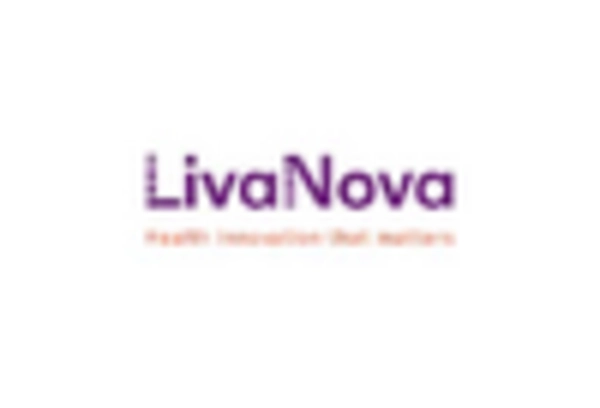Market Growth Projections
The Global Cardiac Implants Market Industry is projected to experience substantial growth in the coming years. With a compound annual growth rate (CAGR) of 9.82% anticipated from 2025 to 2035, the market is expected to expand significantly. By 2024, the market is estimated to reach 44.9 USD Billion, and by 2035, it could potentially reach 125.7 USD Billion. This growth trajectory reflects the increasing demand for cardiac implants driven by various factors, including technological advancements, an aging population, and rising healthcare expenditures. The market's expansion indicates a robust future for cardiac health solutions.
Regulatory Support and Reimbursement Policies
Supportive regulatory frameworks and favorable reimbursement policies are pivotal in shaping the Global Cardiac Implants Market Industry. Governments and health authorities are increasingly recognizing the importance of cardiac implants in managing heart diseases, leading to streamlined approval processes for new devices. Additionally, comprehensive reimbursement policies facilitate access to these technologies, encouraging healthcare providers to adopt them. This supportive environment fosters innovation and investment in the development of advanced cardiac implants. Consequently, the market is poised for growth, as these factors collectively enhance the accessibility and affordability of cardiac care.
Increasing Prevalence of Cardiovascular Diseases
The rising incidence of cardiovascular diseases globally is a primary driver of the Global Cardiac Implants Market Industry. As lifestyle-related factors such as obesity, sedentary behavior, and unhealthy diets continue to escalate, the demand for cardiac implants is likely to increase. For instance, cardiovascular diseases account for approximately 31% of all global deaths, highlighting the urgent need for effective treatment options. This growing health crisis is expected to propel the market, which is projected to reach 44.9 USD Billion in 2024, indicating a robust demand for innovative cardiac solutions.
Technological Advancements in Implantable Devices
Technological innovations in implantable cardiac devices are transforming the Global Cardiac Implants Market Industry. Advancements such as bioresorbable stents, leadless pacemakers, and remote monitoring capabilities enhance the efficacy and safety of cardiac implants. These innovations not only improve patient outcomes but also reduce the risk of complications, thereby increasing adoption rates among healthcare providers. The integration of artificial intelligence and machine learning into these devices further personalizes treatment, potentially leading to better management of cardiovascular conditions. As a result, the market is anticipated to experience significant growth, driven by these cutting-edge technologies.
Aging Population and Increased Healthcare Expenditure
The global demographic shift towards an aging population is a crucial factor influencing the Global Cardiac Implants Market Industry. Older adults are more susceptible to cardiovascular diseases, necessitating advanced medical interventions such as cardiac implants. Additionally, increased healthcare expenditure in many countries supports the adoption of these technologies. Governments and healthcare systems are investing in innovative treatments to address the growing burden of heart diseases. This trend is expected to contribute to the market's expansion, with projections indicating a growth trajectory that could see the market reach 125.7 USD Billion by 2035.
Rising Awareness and Preventive Healthcare Initiatives
Growing awareness regarding cardiovascular health and preventive healthcare initiatives are driving the Global Cardiac Implants Market Industry. Educational campaigns and community outreach programs are informing the public about the risks associated with heart diseases and the benefits of early intervention. This heightened awareness encourages individuals to seek medical advice and treatment, leading to increased demand for cardiac implants. Furthermore, healthcare providers are emphasizing preventive measures, which may result in earlier diagnoses and timely interventions. As a consequence, the market is likely to witness sustained growth as more patients opt for cardiac implants as a preventive measure.
